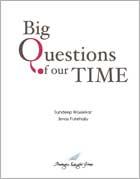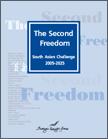Learning determines our future
|
|
October 10, 2016
By Heikki Patomaki
|
The following article is part of the SFG publication “Big Questions of Our time: The World Speaks”. To access the full publication please click here.
---------------------------------------------------------------------------
“Human history becomes more and more a race between
education and catastrophe”, wrote H.G.Wells in the Outline of History a century ago. By education Wells meant
progressive learning not only by the intellectuals but among the common
people, based on the most plausible truth claims available.
The problem is that
there are many types of learning. Through a series of responses and
pathological learning processes – reducing resources for future learning – we
have seen first a succession of neo-liberal and neo-imperial turns and then,
especially during the past decade, various geo-political responses to the alleged
imperialism of the others, such as those that co-generated the conflict in
Ukraine.
Pathological learning processes are associated with a mixture of illusions,
understood as local and particular knowledge, in contrast to understanding the
totality of social relations and processes.
The characteristic illusions include The fallacy of composition (what may be possible for one actor in a given moment is not possible for all or many simultaneously); The narcissism of collective memory (actors only see themselves and their own unique suffering and/or success in the mirror of history); and The Manichean dualism of good and evil (actors are incapable of seeing how their conception of the other mirror images the other’s conception of them).
Assaults against free universities and especially social sciences and humanities across the world are exacerbating the problem. The big question of our time is thus: how can we reverse these developments and learn again to learn in the progressive sense? – before it is too late.
Related Publications
-
.jpg&maxw=50)
Big Questions of Our time: The World Speaks, 2016
Download:Big Questions of Our time: The World Speaks _Full Report
-

-

Second Freedom South Asian Challenge 2005-2025, 2005
read more
Download:Second Freedom South Asian Challenge 2005-2025 Full Report
Related latest News
Related Conferences Reports
-

Global Challenges Conference, October 2016
Download:Global Challenges Conference Report
-

Conference on Responsibility to the Future: Business, Peace and Sustainability, June, 2008
Download:Global Security and Economy: Emerging Issues


